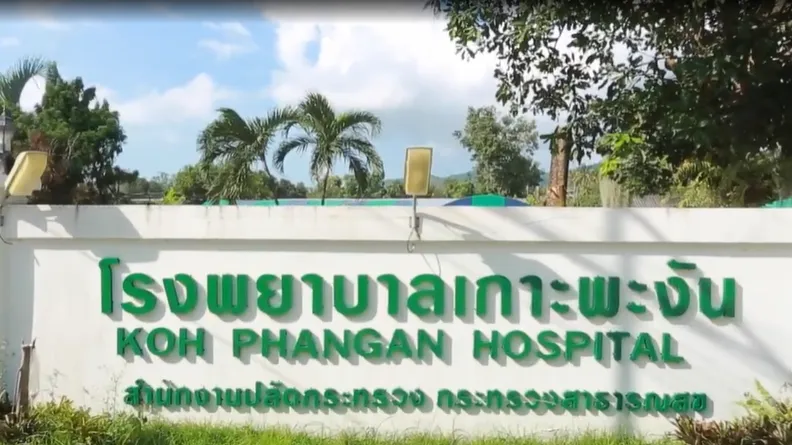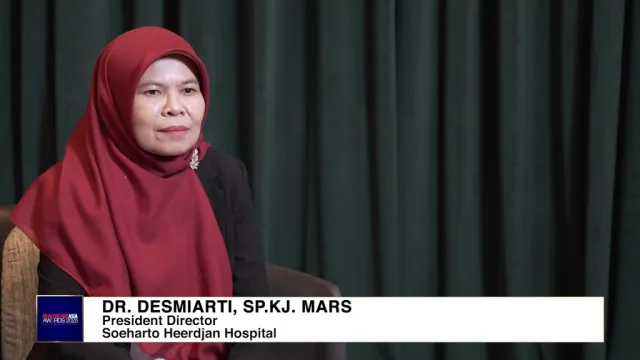
Remote hospital’s ‘smart’ move to weather storms and power outages
Koh Phangan Hospital saved millions of Thai baht in maintenance expenses after switching to a smart hospital.
When monsoons hit Thailand between July and October, Koh Phangan Hospital experiences electricity outages that cannot be resolved by generators. The health institution is located on the country’s most remote island in Surat Thani, whose only source of power is the main electrical grid on the mainland of Nakorn Sri Thammarat province.
These power surges pressure medical staff as it disrupts their medical treatment and patient care, Koh Phangan Hospital Director Dr. Worawut Puttanaporkrattana told Healthcare Asia.
“When the medical staff is overworked, they are more prone to human errors in their assessments, which can make a big difference in diagnosis and treatment,” he added.
These overloads and voltages also damaged expensive medical equipment and started fires in pharmacy rooms.
Uninterrupted power supply
Four years ago, the medical institution started to transition from a 30-bed hospital to operating as a “smart hospital.” Currently, it is in the process of expanding to a 50-bed healthcare facility and purchasing advanced machines for digital transformation. Amongst the hospital’s priciest equipment are echocardiographic machines, a type of ultrasound scan that looks into heart and blood vessels, and exercise stress test treadmills, each costing THB1m.
To keep up with its expansion, Koh Phangan Hospital invested in a three-phase uninterrupted power supply (UPS) system.
“We have seen a significant drop in the frequency of power damage and disruptions to our equipment since the installation of the intelligent UPS system,” said Puttanaporkrattana.
The UPS system, produced by Eaton, has an extended battery module function that matches the health institution’s IP address. The IP address will immediately activate an alarm and send a report when a power surge or outage occurs. It allows the hospital to remotely oversee and shut down the UPS across its network.
When the hospital’s efforts to resolve power surges were hampered by the global health crisis, Puttanaporkrattana said they were able to reach Eaton, which travelled to their location despite stringent travel rules.
Compared to manual generators, UPS systems can power automatically and identify power grid disturbances as well as issues in power supply.
“The power supply needs to have a super load capacity and produce more power within the allowable variation in output voltage.,” the hospital director pointed out.
“UPS systems with user-friendly interfaces that are easy to read and operate can help reduce errors in daily operations whilst those that use lithium-ion batteries have longer lifespans and take up significantly less space compared to traditional battery technologies. This not only frees up valuable space within medical facilities but also reduces the overall cost of operation,” Puttanaporkrattana said.
As cyberattacks pose threats to hospitals, Puttanaporkrattana advised that hospitals should also consider end-to-end cybersecurity services when buying a UPS system - from initial audit to an in-depth analysis of threat and vulnerability to life-cycle management.
Shorter waiting time
Koh Phangan Hospital’s daily patient footprint in its outpatient department (OPD) went up by 33% from about 150 patients in 2018 to 200 in 2019. The number of patient entries swelled to 350 in 2020 and peaked between 400 to 700 in 2021.
Currently, the daily patient traffic in the OPD is 200 to 300 patients, but Puttanaporkrattana believes their patient footfall will gradually increase as Thailand sees more visitors from the pandemic.
Even as patients increase, waiting time and treatment durations have declined nearly 25% – from about one hour and 15 minutes to under an hour.
“This is why the smart hospital initiative is critical to expanding our capabilities and capacity as patient numbers increase over time,” the hospital director said.
Additionally, its stable UPS system allows Koh Phangan Hospital’s digital equipment to operate smoothly. This includes technology deployed to fast-track its services, such as self-service kiosks for patient registration and pre-health checkup. Because of this, medical staff are freed from manually registering their patients’ information on paper and assessing patients’ vital signs.
“Now, the medical staff and administrative support teams can focus on delivering quality healthcare to their patients without worrying about imminent outages. This was especially important during the COVID-19 pandemic when the hospital was under immense pressure to optimise their resources for large volumes of patients,” Puttanaporkrattana explained.
Under its digitisation plans, Puttanaporkrattana said they are hoping to get more high-tech medical equipment and field more UPS systems to use with the existing devices when capacity is nearly full.

 Advertise
Advertise



